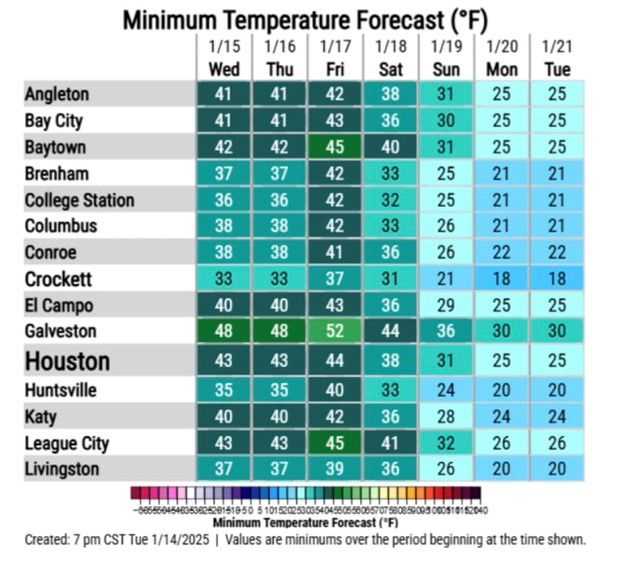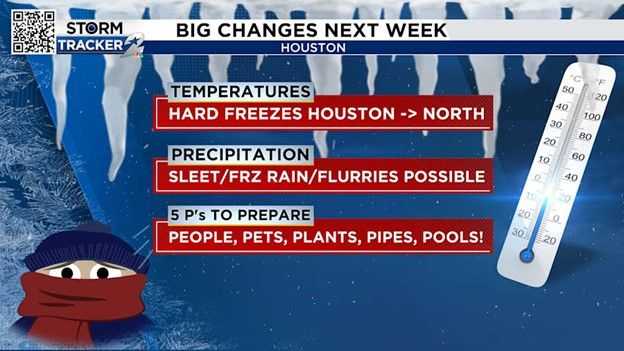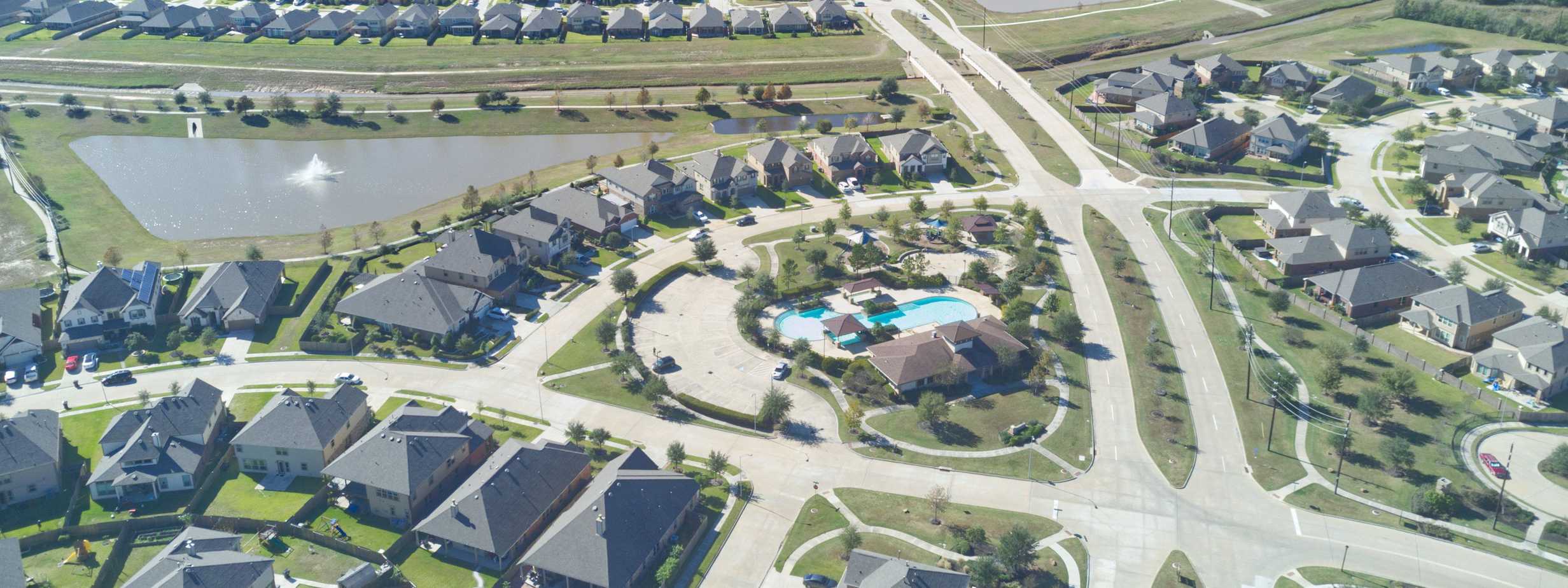
The Gulf Coast is currently in the midst of the second of two cold fronts, with cold rain, high winds, and chill temperatures reminding us that winter is still here in Texas. Friday and Saturday will show us some relief ahead of the freezing weather next week and would be a good time to finish winterization preparations..

The Board of Directors for Willow Point Municipal Utility District of Fort Bend and Waller Counties (“Willow Point MUD”) would like to advise residents of potential freezing temperatures and cold weather conditions coming Sunday evening (1/19) and continuing to Friday morning (1/24) as the second forecasted cold front moves into our area over the weekend. While meteorologists are still uncertain regarding how cold it will get, there is the potential for a hard freeze in all non-coastal locations on Monday through Wednesday evenings and overnights.

The 5 Ps! (Copyright 2025 by KPRC Click2Houston - All rights reserved.)
WHAT IS A HARD FREEZE?
A hard freeze is a temperature under 30° for over eight hours. When water freezes, it expands. When the freeze ends, the result can be broken pipes, no water, a big repair bill, and the cost of lost water.
Those are not the only expenses and sources of aggravation. You may also have to replace carpet, flooring, sheetrock, furniture, and other possessions. Those are the immediate issues, but there can be latent damage as well.
The pipe may not burst with galvanized piping, but expansion can occur, separating the galvanizing from the pipe and creating an area for corrosion to start and ultimately create leaks. Even PEX plumbing in newer homes has difficulty if not properly maintained and prepared for a hard freeze.
Who Do I Call If The Water Goes Out?
The District Operator, Si Environmental, has taken all necessary preparation steps and is constantly monitoring the situation. If you experience loss of service or have any concerns, please contact Si Environmental at (832) 490-1600.
What Else Can I Do?
In addition to the “5 P’s” outlined in the winterization article previously posted, there are additional tips from the local Fire Department:
- If you use a space heater, keep it away from anything that may be flammable, including curtains, indoor plants, bedding, etc. Also, please do not keep it running overnight, and do not keep it running in an unoccupied room. Always turn off space heaters when leaving the room and/or going to sleep
- Do not power space heaters with extension cords or power strips; do not use power strips or extension cords as an alternative for permanent wiring
- Never leave a space heater unattended or a child unattended with a space heater
- Keep all combustible materials (and people) at least three (3) feet away from space heaters
- If you use a fireplace, have a screen to catch any embers that might escape or a rolling log.
- Never overload outlets or breakers
Lastly, here are some tips from Law Enforcement regarding cars and a list of five things you want to make sure you bring inside during a freeze:
- Your smartphone
Based on a warning from smartphone manufacturers, using your devices in very cold temperatures may shorten their battery life or cause them to shut down. While that battery life will return to normal once it warms up, you want your phone or tablet ready to work if needed in an emergency. - Canned beverages
Get those canned drinks out; the liquid inside can freeze and expand, resulting in those cans bursting, which could be dangerous or messy. - Groceries
Bring those groceries inside after going to the store in freezing temperatures. Canned foods can burst and get all over your car. Eggs are likely to crack in freezing temperatures, and the USDA says eggs with cracked shells should be tossed out. - Your meds
Extreme freezing temperatures can cause your meds to lose their effectiveness. - Musical instruments
For those of you who keep musical instruments in your car, USA Today said to take them out because extreme cold could get them out of tune. Some wooden instruments could even crack.
So, what should you keep in your vehicle?
Those are some of the items that you shouldn't keep in your vehicle. Here are some items AAA recommends you keep in it to prepare for an emergency.
- A blanket or extra coat and gloves
- A phone charger
- A flashlight with extra batteries
- Water and snacks
- First-aid supplies
You should always keep jumper cables (or a jumper battery backup) in your car and your gas tank at least half full.
If something happens while you're out and you need help, you can call TxDOT's roadside assistance number at 800-525-5555; if it's an emergency, call 911. For road conditions, call 800-452-9292.
You can also check local road conditions at www.houstontranstar.org; state highway information is available at www.drivetexas.org.
Share these tips to neighborhood social media outlets using the share buttons below; Facebook, Nextdoor, and Twitter shares can help neighbors see these tips before the holiday weekend. Stay safe and warm!
